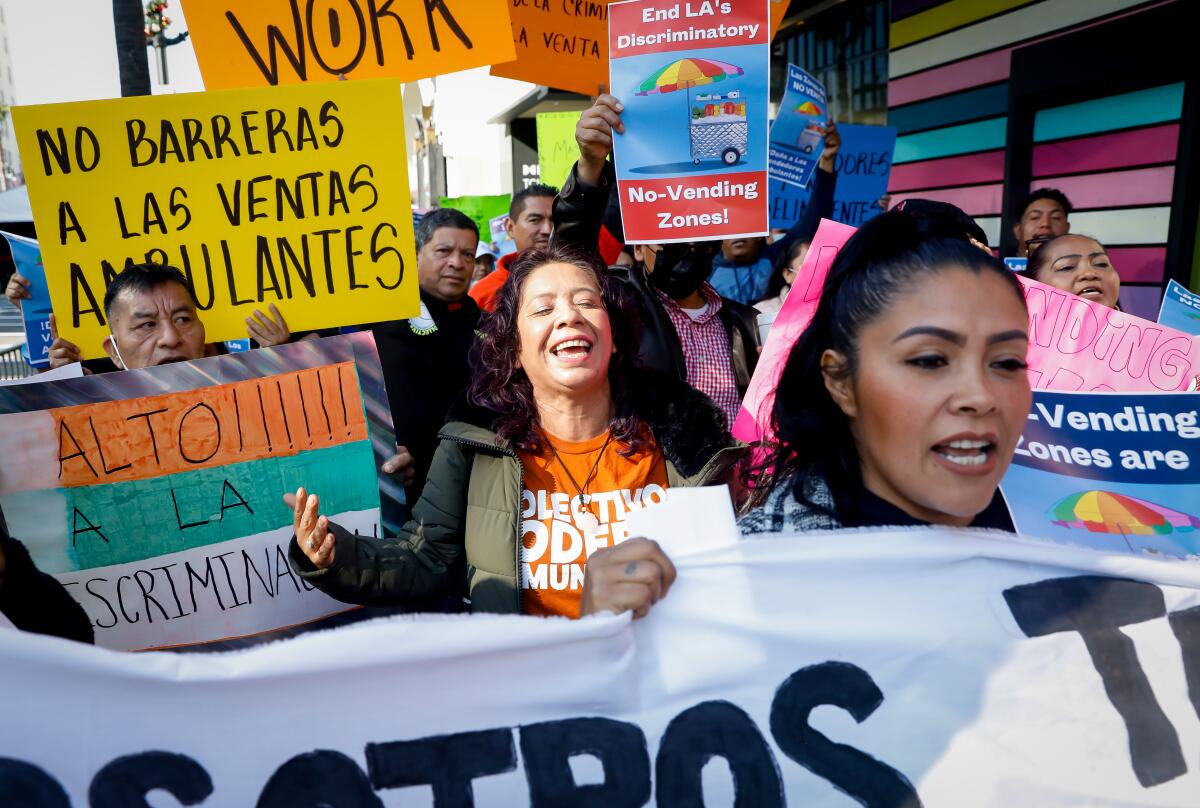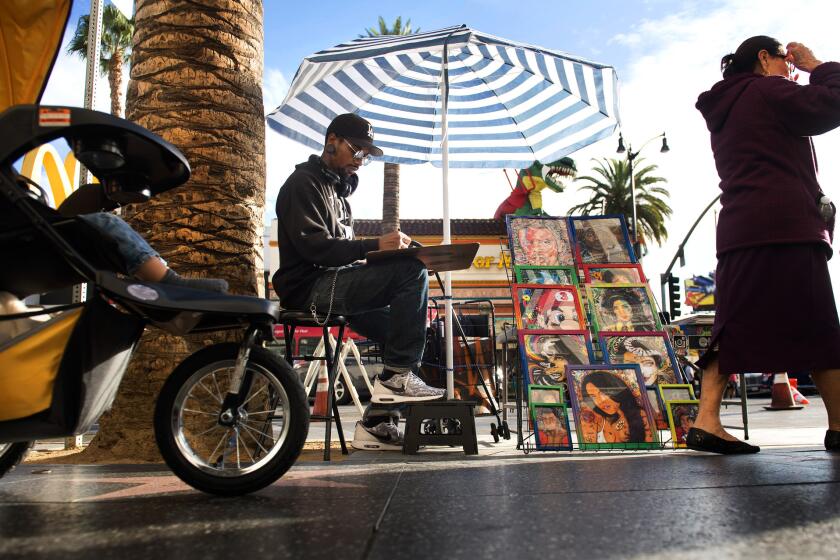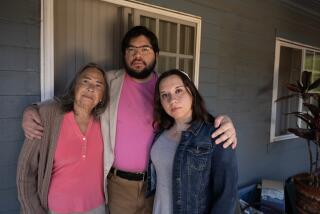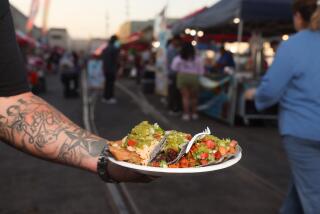L.A. street vendors sue city over right to sell in prohibited zones

- Share via
On a good night, street vendor Merlín Alvarado sells 25 sizzling bacon-wrapped hot dogs to tourists along Hollywood Boulevard near Highland Avenue.
At $8 a dog, the profits are enough to sustain her and her three children.
Yet success for Alvarado depends less on how many hot dogs she sells and more on whether she’s visited by Los Angeles city officials enforcing a no-vending zone.
She’s been ticketed at least 30 times over the last two years, with fines ranging from $100 to $500 each time.
“I’m paying for expensive gas, higher costs for [cooking] oil and food and $20 for parking,” said Alvarado, 36, a native of Tegucigalpa, Honduras who has been a street vendor for 17 years. “Now, one ticket wipes out an entire night’s work.”
Alvarado sued the city on Wednesday, along with fellow Hollywood vendor Ruth Monroy and a trio of community organizations hoping to eliminate eight no-vending zones created by a 2018 ordinance that decriminalized street vending elsewhere in the city, as long as sellers purchased permits.
Alvarado is one of about 85 vendors she knows who sell within 500 feet of the Hollywood Walk of Fame, where a 1.3-mile stretch teeming with potential customers is off-limits.
Near the bustling corner of Hollywood and Highland, Coty O’Donohue sells bottled water, sodas, cellphone accessories and other knickknacks to tourists strolling down the Walk of Fame.
“Enough is enough,” Monroy, 42, who sells hot dogs and fruit on the strip, said Thursday at a news conference on Hollywood Boulevard. “We’re all legal. We paid for our permits, and all we want is the same rights that other businesses have. It makes no sense that we are harassed and pushed away.”
The other zones where street vending is prohibited within 500 feet are Dodger Stadium, Hollywood Bowl, LA Live and the Convention Center, the Los Angeles Coliseum and Exposition Park, Olvera Street, Universal City/Universal Studios and Venice Beach. The city’s stated reason was that street vending could worsen congestion.
“These are a huge sections with some of the most popular destinations in Southern California cut off from hard-working street vendors,” said Katherine McKeon, an attorney with Public Counsel, which along with the law firm Arnold & Porter Kaye Scholer is representing the plaintiffs pro bono.
The lawsuit alleges that the city is violating a state law allowing local governments to limit sidewalk sales because of “public health, safety and welfare concerns.”
Los Angeles lawmakers have wrestled for years with how to legalize and regulate the vendors who sell food and goods on the city’s sidewalks.
“The City Council or city staff have never provided evidence as to why street vendors could not be allowed in these areas,” McKeon said.
Rob Wilcox, a spokesperson for the city attorney’s office, said city officials were reviewing the lawsuit.
Hermenegilda Garcia came to the news conference to support fellow street vendors. She said she is “rarely hassled” selling hot dogs and tacos inside the no-vending zone at Exposition Park.
But a decade ago, she said, she was arrested and nearly deported for street vending.
“The vendors fought hard for legitimacy and for our right to sell and to be productive members of society,” said Garcia, 48, a native of Acapulco, Mexico. “That’s all we want.”
Near MacArthur Park, where there are no restrictions on street vending, sellers hawked pupusas, sneakers, batteries, blenders and other items on Thursday.
Carlos Carrasco, 43, a native of La Unión, El Salvador, displayed his wares — toilet paper, tissues, napkins and paper towels — on South Alvarado Street.
He sympathizes with street sellers in the no-vending zones but wonders why they don’t try their luck elsewhere.
“Once I get the first ticket, I’m leaving,” he said Thursday afternoon. “I can’t afford to absorb a $100 or $200 ticket.”
Cynthia Cisneros, 33, a native of the Mexican state of Guanajuato, said she has been selling elotes near MacArthur for two years, free from the harassment she experienced when she set up shop near the Fashion District.
“You have to go where you can survive,” Cisneros said under a rainbow parasol. “I hope the vendors have success, but I’ve never seen anyone beat City Hall.”
More to Read
Sign up for Essential California
The most important California stories and recommendations in your inbox every morning.
You may occasionally receive promotional content from the Los Angeles Times.












